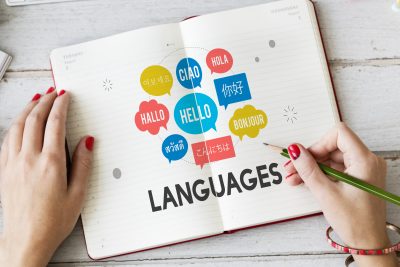Under state and federal law, all parents have the right to information about their child’s education in a language they can understand. This information is translated on handouts in multiple languages from the Office of Superintendent of Public Instruction (OSPI).
Language access includes translated documents and an interpreter for meetings and conversations. Parents have the right to these services even if they speak some English. These rights are unchanged if the student can speak or read English.
Meetings and Conversations
When families talk with teachers or school employees, the school is responsible to offer an interpreter if one is needed. This includes parent-teacher conferences, meetings about special education, or any other conversations about a student’s education.
The school is responsible to provide competent interpreters who are fluent in English and in the family’s language. Interpreters are responsible to understand any terms or concepts used during the meeting. It’s not appropriate to use students or children as interpreters.
The interpreter communicates everything said during the conversation in a neutral way, without omitting information or adding comments. The school ensures that interpreters understand their role and the need to keep information confidential.
The interpreter may be in person, on the phone, or in a virtual space. The interpreter may be a district employee or an outside contractor.
Translated Information
Schools are responsible to translate important written information into the most common languages spoken within their districts. If a family receives information that is not in their language, they have the right to request a translated copy or for a translator to share the information verbally.
The school is responsible to communicate with parents in their language about:
- Registration and enrollment in school
- Grades, academic standards, and graduation
- School rules and student discipline
- Attendance, absences, and withdrawal
- Parent permission for activities or programs
- School closures
- Opportunities to access programs or services-including highly capable, advanced placement, and English language learner programs
For students with disabilities, families should expect all documents about a student’s services to be translated into their native language. These may include:
- Meeting invitations
- Evaluation results
- Individualized Education Program (IEP)
- Section 504 Plan
- Prior Written Notice (PWN)*
*Prior Written Notice (PWN) is a document schools are required to provide to the family after a meeting. The PWN includes notes from the meeting and describes any changes to a student’s services before those changes take effect. Parents have the right to add information or request changes to the PWN.
Questions, Concerns, and Complaints
Language access is a civil right. Districts have staff members responsible for civil rights compliance and non-discriminatory practices. OSPI provides a list of civil rights compliance coordinators statewide, including their email and phone number. Families can reach out to this person to explain what happened and what would fix the problem.
If the concern or disagreement is not resolved, families may file a discrimination complaint.

